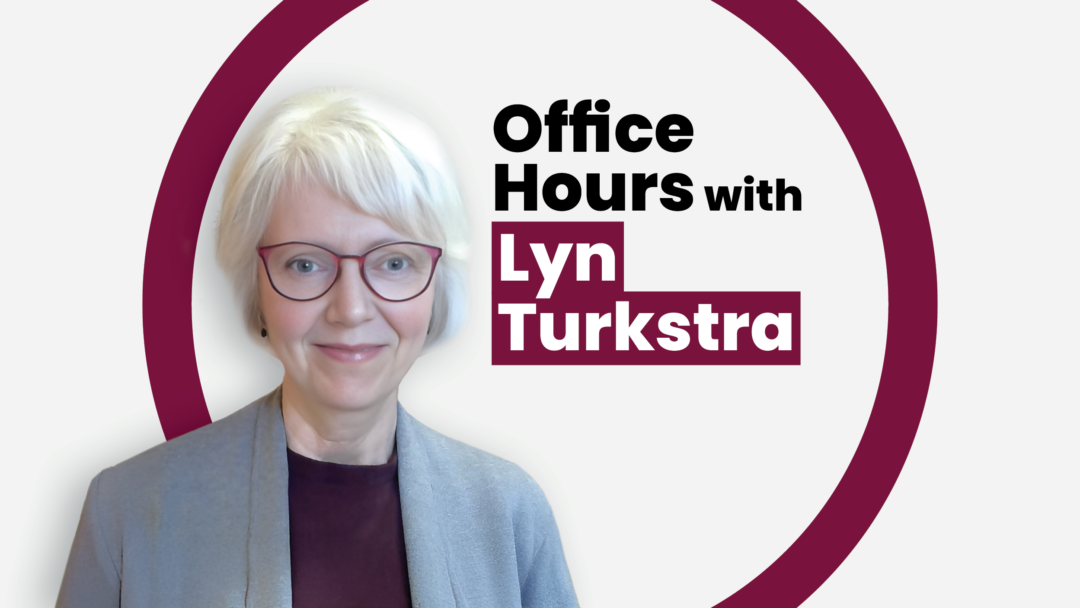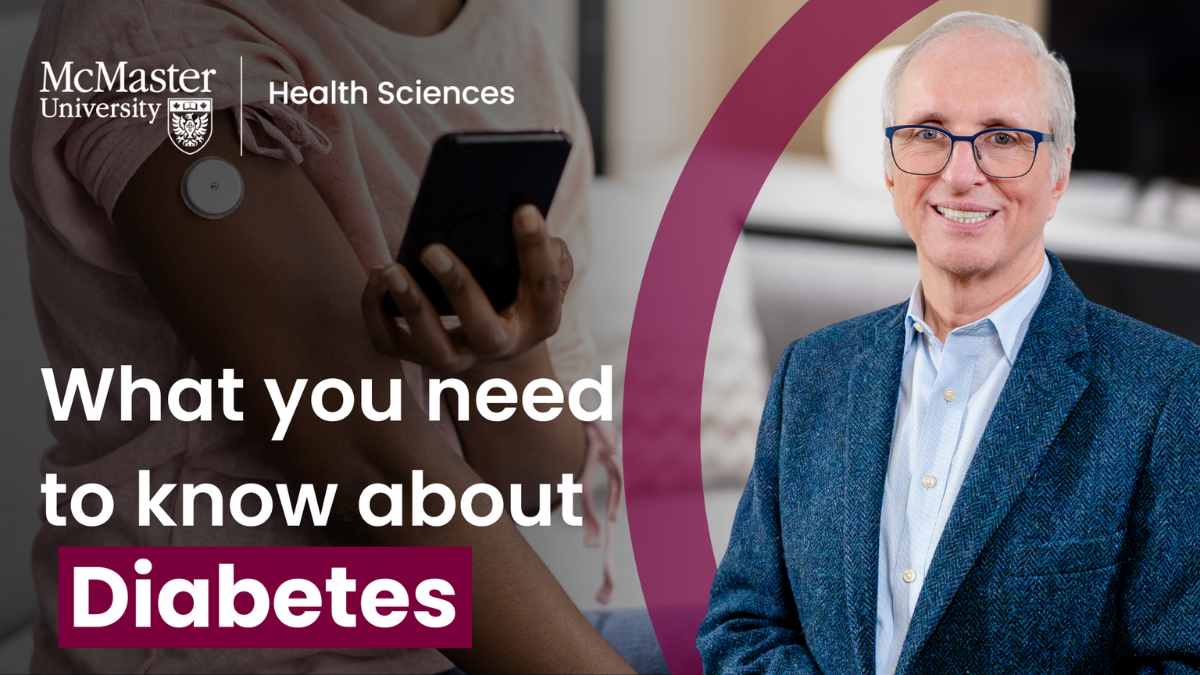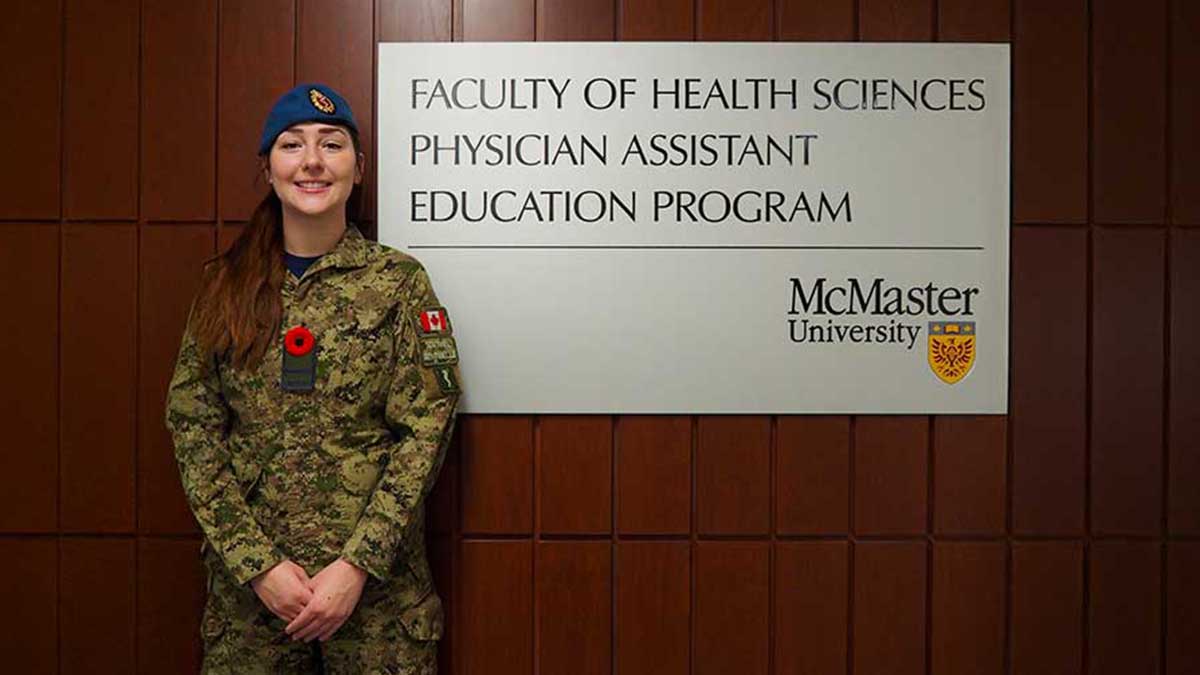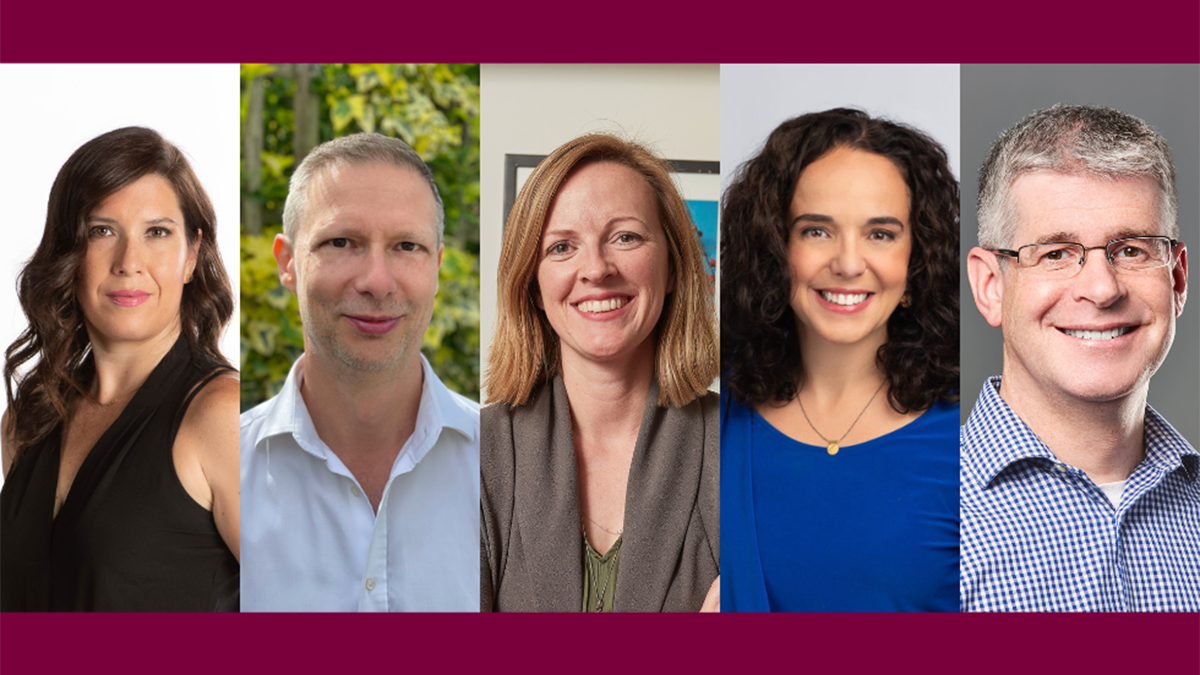Office Hours with Lyn Turkstra

The ability to communicate comes in many shapes and forms. From speaking to writing to texting – the exchange of information relies on millions of complex interactions in the brain. We mostly take our communication ability for granted, until we can’t.
A single brain injury can change communication ability for life. Helping people regain that ability is where speech-language pathologists come in, and where Lyn Turkstra, a professor and assistant dean of the Speech-Language Pathology program in McMaster University’s School of Rehabilitation Science, has dedicated her career to.
Known for her deep commitment to understanding and improving communication for people with brain injury, Turkstra’s career spans clinical practice, academic leadership, and research that makes a difference. With over 150 peer-reviewed publications and dozens of presentations to researchers and clinicians, her work has significantly advanced brain injury rehabilitation.
Inspired by an early-career patient encounter
Turkstra’s journey into speech-language pathology started with a career counseling program in Toronto, where a counselor suggested her unique mix of interests in science, language, and art could find purpose in this field. “I’d never heard of speech-language pathology before, but after meeting people in the field, I could see myself in that profession” she recalls. “It combined everything I was interested in.”
After completing her master’s degree, Turkstra’s first clinical placement was on the neurosurgery unit at then-named Mississauga Hospital, where she had a patient experience that would shape her entire career focus. “There was a young man who’d been severely injured in a car accident. At first, it seemed like he was unresponsive,” she explains. But the care team soon discovered that the patient could communicate with others by tapping a foot switch; the patient’s awareness and cognition were still intact.
“That was the beginning of my passion for finding ways to communicate with people who had severe brain injury,” she says. That single patient encounter inspired Turkstra to pursue a career helping individuals access the tools and strategies necessary to connect with the world around them.
This passion carried her through her PhD and into a post-doctoral fellowship, where she began to specialize in the unique social communication challenges of adolescents and adults with traumatic brain injury (TBI). Social communication challenges are a main barrier to community reintegration after TBI, but at that time researchers and clinicians had little information about how to help. Fast forward to today, when we have international guidelines for clinical practice in this area, thanks to the hard work of Turkstra and her speech-language pathology research colleagues around the world.
Isn’t it ironic? Communicating the importance of communication-focused rehab
One of the challenges Turkstra says speech-language pathologists experience is the lack of awareness of the importance and impact of communication-focused rehabilitation. “I wish families and healthcare decision-makers understood how much we can help,” she says. “A lot of times, people don’t realize that social communication challenges after a brain injury are something we can address.”
Turkstra firmly believes in the role rehabilitation can play in restoring independence and supporting societal reintegration. She actively advocates for healthcare decision-makers to recognize the cost-effectiveness of investing in these services.
“There just aren’t enough resources, and families often don’t know where to turn,” she notes, calling for more comprehensive support networks and increased funding to support brain injury rehabilitation and the practice of speech-language pathology.
Turkstra’s advocacy also takes shape in her academic work, where she focuses on translating research into practice so health teams have the tools they need to improve patient outcomes. “Currently we’re exploring cognitive rehabilitation methods for soldiers and veterans with mild TBI – also known as concussion- and people living with long COVID,” she says. With Assistant Dean for Occupational Therapy Dr. Jackie Bosch, Turkstra and their team recently completed a study of cognitive rehabilitation for Canadian Armed Forces and RCMP veterans, funded by the Atlas Institute for Veterans and Families; and Turkstra and her U.S. colleagues have launched a $2.5 million study of cognitive rehabilitation for US service members, funded by the U.S. Department of Defense. These studies aim to adapt and refine rehabilitation practices to meet the unique needs of these populations.
Through her lab’s involvement in projects such as the development of cognitive assessment tools and intervention methods, Turkstra’s work is pushing the boundaries of how clinical research is applied. Her goal is clear: to make evidence-based practices accessible and effective, supporting patients’ independence and reducing their long-term care needs.
Nurturing those who come next
As a professor and mentor, Turkstra finds great joy in her interactions with students, who bring fresh perspectives and new ideas to the field. “Working with students is really where I have the most joy in a day,” she says. “After studying and teaching about the brain for so many years, I like to think I can make it understandable.”
The influence of key mentors isn’t lost on Turkstra. She credits Mark Ylvisaker, a renowned figure in brain injury rehabilitation, for teaching her to focus on what people truly need in their daily lives – a lesson she similarly strives to inspire in her mentees.
Looking to the future, Turkstra is focused on expanding her research and fostering collaboration with emerging scholars. She recently partnered with junior researchers to launch a series of demonstration projects aimed at improving therapy in real-world clinical settings. “It’s exciting to work directly on the front lines and make an impact that changes how therapy is delivered,” she explains. These projects span various settings, including community centres and rehabilitation hospitals, providing hands-on research experience for young professionals while advancing rehabilitation methods for brain injury care.
Turkstra’s impact reaches beyond her lab and classroom, embodying a philosophy rooted in patient-centred care and community support. “There’s a lot we can do to support people through life’s challenges,” she says, “and I’m grateful to play a part in that.”
Faculty & Staff, Feature, Office HoursRelated News
News Listing

Here’s what this renowned diabetes researcher wishes you knew about the disease
Dept. Medicine, Feature, Knowledge Translation
3 days ago

Canadian military members advance training with McMaster’s Physician Assistant program
Collaborations & Partnerships, Education, Feature
5 days ago

